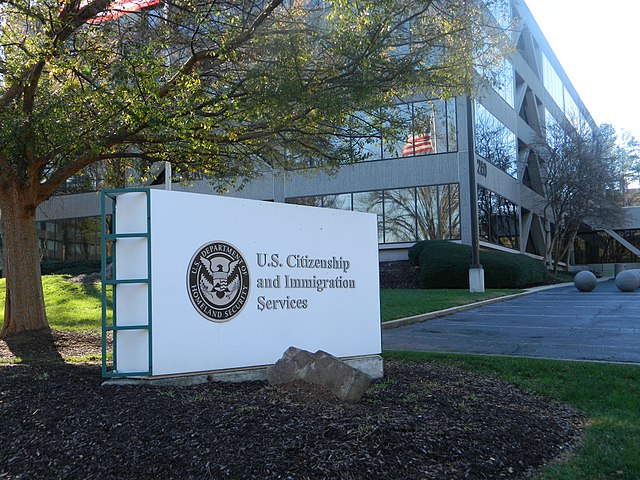

H-1B Lottery Faces Fundamental Restructuring
On September 23, 2025, President Donald Trump unveiled a high-impact proposal to significantly alter the U.S. H-1B visa program. Under this proposal, the existing random lottery system for new H-1B petitions would be replaced with a wage-weighted selection process, favoring higher-paid, higher-skilled foreign workers. At the same time, employers would be required to pay a $100,000 application fee for each new H-1B petition submitted under the revised process.
These changes are intended to take effect for the FY2026 lottery cycle, typically held in March.
While the administration frames the overhaul as a strategic effort to protect American workers and elevate labor standards, the proposal has drawn criticism for potentially shutting out startups, academic institutions, and mid-sized companies unable to compete on wages.
The Proposed Wage-Based System: How It Works
According to the plan disclosed to Yahoo Finance, H-1B lottery entries would be ranked in tiers based on proposed wage levels offered by sponsoring employers. Applicants in the top wage tiers would be granted a significantly higher chance of selection, reducing or eliminating randomness in favor of salary competitiveness.
This model, a revival of a 2020 Department of Homeland Security rule that was blocked by federal courts, reflects Trump’s renewed commitment to reshaping employment-based immigration.
For skilled immigrants, this means those in high-salary roles—particularly in artificial intelligence, data engineering, and cybersecurity—stand to benefit. However, for many international students or mid-level professionals, especially in fields like education, architecture, or healthcare, the path to H-1B sponsorship could narrow significantly.
The $100,000 Filing Fee: Barrier or Filter?
Perhaps more striking is the introduction of a $100,000 filing fee for each new H-1B petition. This is a massive increase from the current government filing fees, which typically range from $1,700 to $6,500 depending on the size of the employer and type of petition.
The administration claims the fee will fund “border security and domestic labor programs.” Critics argue that it will price out small businesses, nonprofits, and research institutions, which often rely on H-1B workers in niche roles.
Importantly, the proposed fee does not apply to H-1B renewals, according to clarifications published by Yahoo Finance. Current H-1B holders and extension filings would not be subject to the new cost.
Legal, Economic, and Sectoral Implications
The combination of a wage-weighted lottery and steep application fee is expected to fundamentally change who is able to access the H-1B program. While some high-paying firms may embrace the prioritization of elite candidates, the broader effect could be a shrinking of the H-1B applicant pool and a chilling effect on global tech recruitment.
Immigration experts have raised constitutional and procedural concerns, particularly around the imposition of a six-figure fee via executive action without congressional approval. Court challenges are likely, especially from universities and business coalitions.
Industries such as healthcare, technology, finance, and education—sectors traditionally dependent on foreign talent—could see immediate impacts. Organizations that rely on H-1B workers in mid-range wage roles may be forced to look for alternative visa strategies or remote labor solutions abroad.
How Spar & Bernstein Is Helping Clients Prepare
As always, Spar & Bernstein is positioned to lead clients through this critical transition with clarity, strategy, and proactive advocacy. Here’s how we are assisting:
-
Strategic Salary Structuring: Our legal team is guiding employers on aligning job offers with DOL wage level benchmarks to optimize selection odds under the new lottery structure.
-
Petition Timing Optimization: We are helping businesses determine the most effective window to file under current rules, potentially ahead of the FY2026 implementation.
-
Alternative Immigration Pathways: For employers unable to meet wage thresholds or afford the new fees, we are exploring O-1, TN, L-1, and employment-based green card options as flexible alternatives.
-
Litigation Support & Advocacy: Should legal challenges proceed, Spar & Bernstein is ready to represent both employer and employee clients in seeking injunctive relief or waivers where available.
-
Regulatory Comment Submission: We are preparing and submitting comments during the DHS rulemaking process to ensure our clients’ concerns are formally registered with policymakers.
A Time to Act with Insight
For employers and skilled workers alike, the road ahead will require adaptability, expert guidance, and informed decision-making. With over 60 years of immigration law leadership, Spar & Bernstein continues to stand at the forefront of protecting opportunity, safeguarding talent, and preserving access to America’s innovation economy.
Contact us today to schedule a strategy session and prepare for what’s next in U.S. immigration policy.




